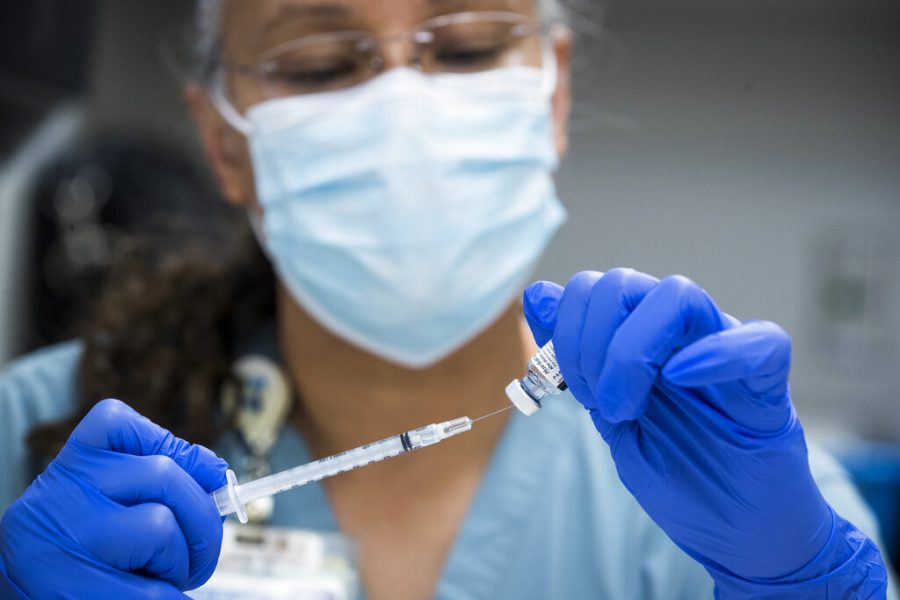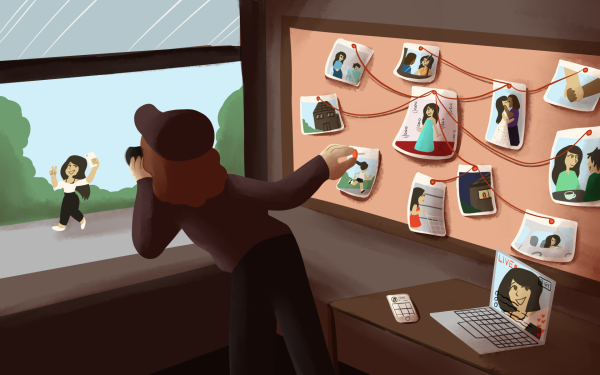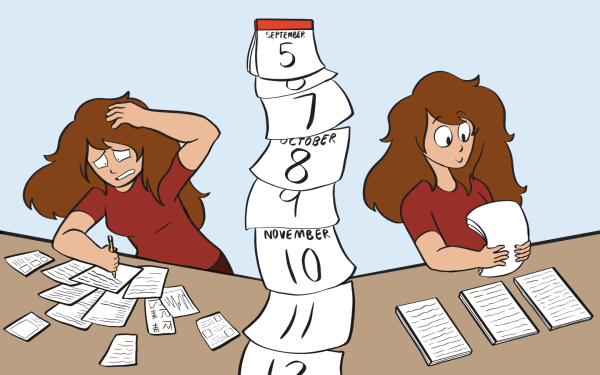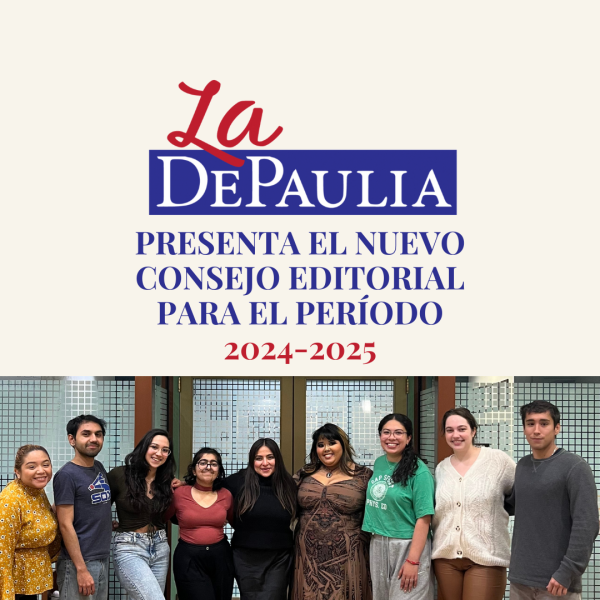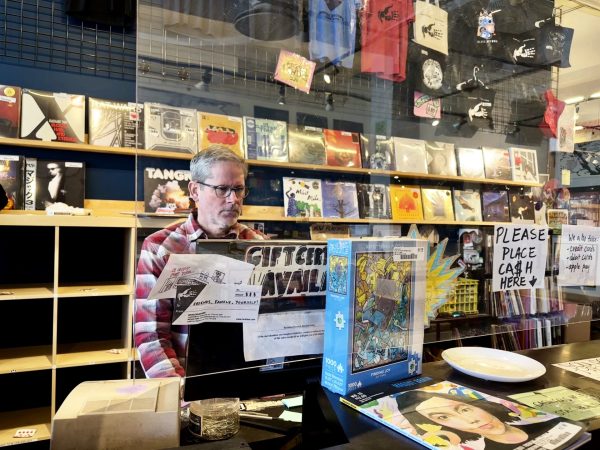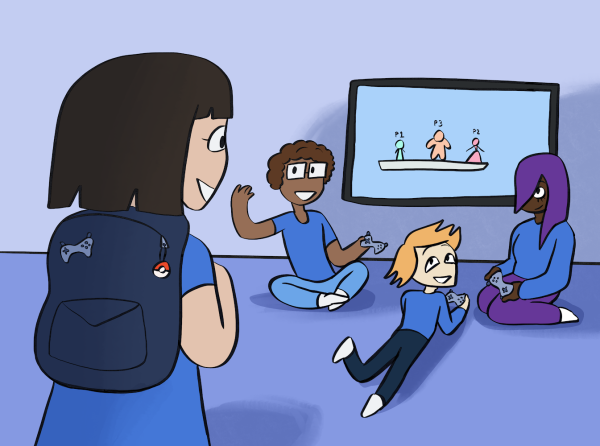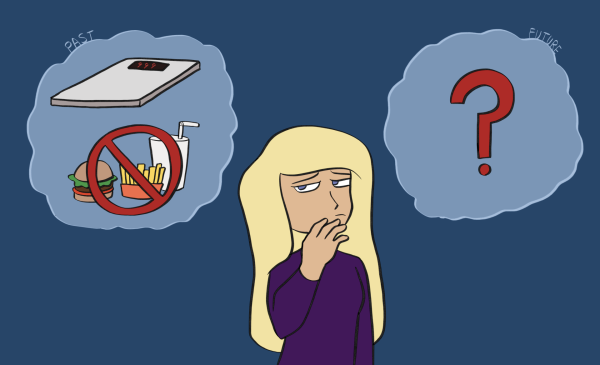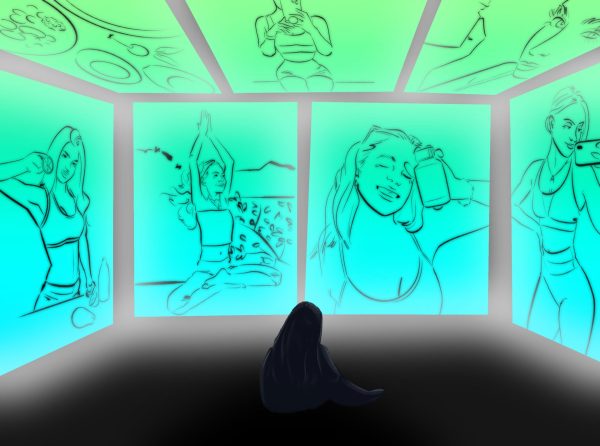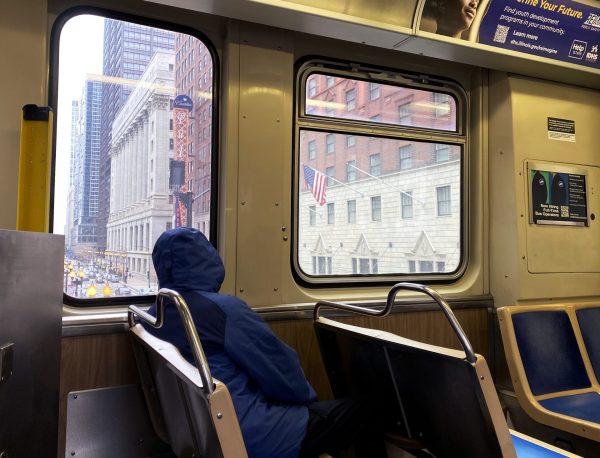OPINION: DePaul’s vaccination mandate prioritizes safety over personal liberties
FILE – In this Thursday, Feb. 11, 2021 file photo, pharmacy technician Sochi Evans fills a syringe with a Pfizer-BioNTech COVID-19 vaccine at Texas Southern University in Houston. Coronavirus cases are continuing to decline in the U.S. after a winter surge. Researchers at Johns Hopkins University say the seven-day average of new coronavirus cases in the country dropped below 100,000 on Friday, Feb. 12 for the first time since November 4. (Brett Coomer/Houston Chronicle via AP, File)
DePaul’s President’s Office announced last Tuesday that the university will require any student, regardless of academic standing, who chooses to return to campus in the fall to be fully vaccinated with any Covid-19 vaccine.
I’m fully vaccinated and this mandate won’t affect my decision to go to campus this fall. However, I received my vaccine on my own accord. Nobody forced me. No pressure or incentive on my education factored into my decision.
While indifferent opinions are rare nowadays, I’m indifferent to the mandate because I can afford to be and there are valid points to be made on both sides.
While I cannot speak for all of DePaul’s diverse and multifaceted student body, my own reasons for receiving the vaccine do not merit whether someone else should be obligated to do the same. However, what is certain is that DePaul took a risk siding with ensuring comfort within their student body and faculty upon return rather than allow students to access their own health decisions as they please.
The risk is DePaul may lose out on students, who, for various reasons, do not feel they want or need the vaccine but still want to experience college in an in-person forum. However, that risk has somewhat diminished, as now nearly 100 schools across the country have announced a similar mandate, according to U.S. News.
This is a rapidly accelerating phenomenon, as just weeks ago, that number was roughly a dozen schools. While there is a rise in schools requiring vaccinations upon return, there is also a rise in vaccine hesitancy threatening the potential for national herd immunity. One in four Americans is refusing to get any form of the Covid-19 vaccine, according to NPR.
Illinois Gov. J.B. Pritzker is pushing to pass vaccine passports or state laws requiring citizens to be fully vaccinated to do various activities, according to The Center Square, an Illinois-based publication. However, DePaul’s President’s Office made no mention of this factoring into their decision.
This means that there was a clear choice for DePaul. Either leave vaccination as a choice for every student to preserve personal liberties, or require vaccination in accordance with health and safety guidelines. The university chose the latter.
Craig Klugman, a professor of health sciences and member of DePaul’s Covid-19 task force, felt that DePaul’s history of vaccine documentation requirements, as well as the proven nationwide effectiveness of the vaccines, was an integral part in why the consensus was reached.
“DePaul has required many vaccines for decades — measles, mumps, rubella, pertussis, diphtheria, meningitis and tetanus — so the idea of requiring a vaccine is not new,” Klugman said. “Plus, with nearly a billion Covid-19 vaccine shots given worldwide, clearly these multiple vaccines are safe.”
The mandate also serves to benefit some of DePaul’s older and more immune-compromised faculty and staff.
Aaron Turner, a DePaul senior and organizational communication major, felt this mandate would ease safety concerns in an efficient way.
“This presents a faster solution to allowing college students to have a college experience and feel safe while doing it,” Turner said.
While on the surface, this mandate appears to threaten those with religious opposition or medical implications, DePaul has provided options to fill out both medical and religious vaccine exemption forms.
However, “General philosophical or moral reluctance to allow immunizations will not provide a sufficient basis for an exception to statutory requirements,” according to the DePaul University Religious Immunization Exemption Form.
Despite the availability of vaccine exemptions, any widespread medically proposed and governmentally pushed solution to a pandemic is bound to foster “general philosophical or moral reluctance,” especially when created so rapidly.
Barbara Kratville, a DePaul junior and leadership major, while planning on getting the vaccine, still feels the decision was a bit of an overstep.
“I think this borders on invasive due to the nature of the illness and newness of the vaccines,” Kratville said. “I think it should be a personal choice.”
For healthy, antibody-carrying people, politically fueled reluctance, vaccine production mishaps and mistrust regarding widespread health ordinances all serve as valid, albeit widely disregarded, philosophical reasons for vaccine hesitancy.
For instance, 72 percent of Democrats — compared to just 28 percent of Republican citizens — expressed support for colleges and universities requiring that students get vaccinated before being allowed on campus, according to an nationwide ABC News/Washington Post poll, showing a deep political divide on the issue.
Essentially only half the nation agrees with these mandates, and though this isn’t a pool of surveyed DePaul students, it is a factor in why I think the decision is a risk in terms of backlash.
Johnson and Johnson recently lifted a pause on the distribution of its Covid-19 vaccine due to blood clotting issues in women, according to CNN Health.
Additionally, a Johnson and Johnson quality control process in late March identified a batch of their vaccine that did not meet their standards, leading to the discarding of 15 million dosages, enough to vaccinate New York, Los Angeles, Boston and Philadelphia combined, according to NBC Boston.
It garners the question, what would have happened if the faulty vaccines had been injected into citizens by accident? Mistrust of widespread health or medical ordinances can factor into a philosophical hesitancy of receiving a vaccine as well.
Historically, the infamous Tuskegee Study on syphilis in Black men, which ended in a class-action lawsuit filed against the CDC for ethically unjustified experimentation, and a $10 million out-of-court settlement supplied to survivors of the study, served as an example that fueled distrust in lofty medical escapades.
It’s clear that when involving Covid-19, DePaul’s decisions have always sided with the CDC and the presentation of a safe environment.
Despite allowing some religious and medical exemptions, the mandate does not account for other reasons why some students may oppose vaccination. It unfortunately leads to the stripping of personal liberties and subjugation of ideologies of some of DePaul’s diverse, multi-faith and supposedly inclusive communities.
As a transfer student planning to make my first arrival to the Lincoln Park campus in the autumn quarter, I can’t make a statement to whether this was the correct or incorrect decision until the effects are fully observed.
I can only hope this decision doesn’t backfire on an institution that has pridefully touted inclusivity in its Mission Statement but minimizes the wide array of personal interests of its coveted returning student body.


